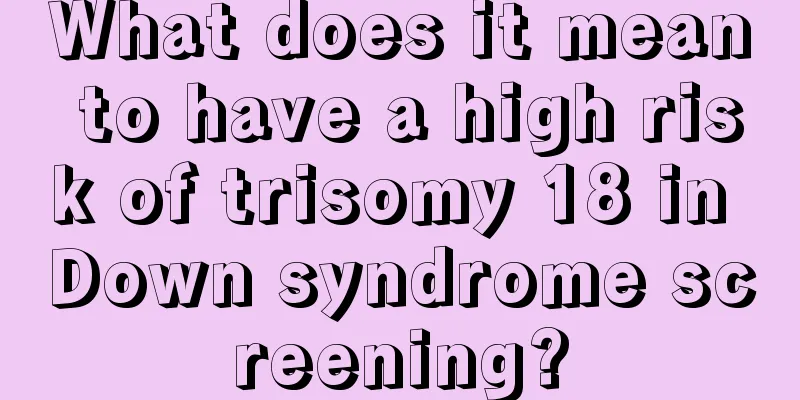I suddenly stopped having my period at the age of 47.

|
If you suddenly stop having your period at the age of 47, you may have entered menopause. Women's ovaries begin to decline gradually after the age of 40, and most women will experience menopause between the ages of 45 and 55. Because individual differences vary, the age of menopause is also different. The sudden absence of menstruation at the age of 47 is considered to be a normal physiological phenomenon, as the ovaries have already declined and entered menopause. However, attention should be paid to preventing cardiovascular disease and osteoporosis. Therefore, it is recommended to supplement iron, pay attention to drinking a glass of milk every day, get more sun exposure, and exercise moderately, so as to prevent osteoporosis and cardiovascular disease. If a woman suddenly stops having her period at the age of 47, she has already entered menopause and is likely to have entered the menopausal stage. It is also recommended to clinically rule out the possibility of pregnancy, because after all, there will be intermittent ovulation during menopause. If you do not use any contraceptive method, you may still get pregnant, so it is recommended to eliminate the possibility of pregnancy and use a pregnancy test strip to check whether you are pregnant. If pregnancy is ruled out, it is recommended that you do not need to worry, because at this age the ovaries have already declined, and the sudden absence of menstruation has indicated that you have entered menopause. It is best to make appropriate adjustments to your diet and eat more foods containing estrogen, which will alleviate the symptoms of menopause. A 47-year-old woman suddenly experienced amenorrhea. There are two main possibilities to consider: 1. Abnormal pregnancy caused amenorrhea. The patient had sex without taking any contraceptive measures. It is necessary to check blood and urine HCG to determine whether she is pregnant. If it is pregnancy, it is only necessary to distinguish whether it is uterine cavity or ectopic pregnancy, and determine the treatment plan based on the examination results. Second, the key consideration is that the patient has ovarian failure, which causes amenorrhea. Because the average age of menopause for women is 49.5 years old, the average age range of menopause is 44-54 years old. The patient is 47 years old and her ovaries have already begun to decline, so it is normal for her to have amenorrhea. If the patient is clear of pregnancy and has no further menstruation, no treatment is given. If the patient wants to improve the quality of life and have menstruation again, he or she needs to check six sex hormones, do anti-Mullerian antigen and B-ultrasound tests, and choose medication according to the situation. |
<<: I want to vomit but can't vomit. Is it pregnancy?
>>: Difference between perimenopause and menopause
Recommend
Is mild breast tenderness serious?
Mild breast swelling depends on the specific dise...
AMH and age comparison table
Women who are planning to get pregnant must know ...
How long after giving birth can you eat meat?
Because women consume a lot of physical energy af...
How to clean dirt from pores
Dirt accumulated in the pores of the skin will ca...
Do French fries have to be soaked in salt water? Why do French fries need to be soaked in salt water?
We all know that French fries are a common snack....
How many days after sex will you get pregnant?
Nowadays, many young people are unwilling to get ...
Can pregnant women have a pedicure?
There are many nerves on the soles of the feet. W...
What are natural estrogen drugs?
Many female friends are prone to endocrine disord...
There are white spots on the vulva
Women often experience itching in their vulva, wh...
Counterpoint: Global smartphone market declines 14% in Q1 2023, Xiaomi falls 22%
According to the latest report released by market...
What should women do if they have lower abdominal pain due to a cold?
Many women accidentally catch a cold during menst...
Who needs cervical screening?
People will suffer from some diseases in their li...
How painful is menstruation
Many female friends feel extremely painful every ...
How to make chestnut chicken soup? How to make pork ribs stewed with chestnuts?
Chestnuts contain unsaturated fatty acids, vitami...
[Medical Q&A] How many of the five magic weapons for cervical screening do you know?
Planner: Chinese Medical Association Reviewer: Ji...









